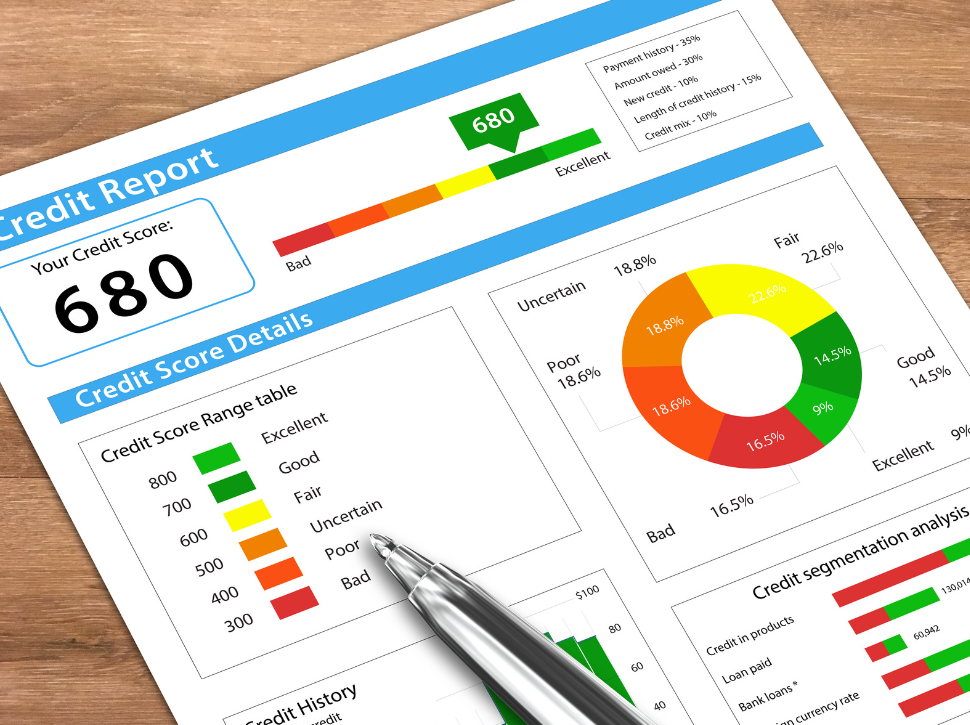Personal and business credit scores play significant roles in securing a commercial or multifamily mortgage, affecting the lender’s assessment of risk, loan approval, and the terms of the loan. Here’s an in-depth look at how these credit scores influence the mortgage process:
Personal Credit Scores
Role and Impact - Assessing Borrower’s Creditworthiness:
-
- Personal Credit Scores: For individual borrowers, personal credit scores are crucial as they reflect the borrower’s credit history, including payment history, outstanding debts, and overall financial management.
- Lender Evaluation: A high personal credit score indicates responsible credit use and reduces the perceived risk for the lender, potentially leading to more favorable loan terms.
Loan Approval:
-
- Credit Score Requirements: Lenders often set minimum personal credit score requirements. A higher score can increase the likelihood of loan approval, while a lower score may result in higher interest rates or additional requirements.
Interest Rates and Terms:
-
- Impact on Rates: Borrowers with higher personal credit scores may qualify for lower interest rates and better loan terms, as their financial reliability reduces the lender’s risk.
- Negotiation Leverage: A strong personal credit score can provide leverage in negotiating loan terms, such as reduced fees or extended repayment periods.
Personal Guarantees:
-
- Personal Guarantees: In many commercial and multifamily loans, especially for new businesses or entities with limited credit history, lenders may require personal guarantees. A strong personal credit score can be crucial in securing these guarantees and ensuring favorable terms.
Business Credit Scores
Role and Impact - Evaluating Business Financial Health:
-
- Business Credit Scores: For borrowers applying under a business entity, business credit scores assess the financial health and creditworthiness of the business itself. This includes the company’s payment history, credit utilization, and overall financial management.
- Lender Assessment: A strong business credit score indicates that the business has a history of managing credit responsibly, which reduces the risk for the lender.
Loan Approval and Terms:
-
- Credit Score Impact: A high business credit score can enhance the chances of loan approval and may lead to more favorable loan terms, such as lower interest rates and higher loan amounts.
- Creditworthiness: Business credit scores help lenders assess the ability of the business to manage debt and meet financial obligations, influencing their decision on whether to approve the loan and under what conditions.
Building Business Credit:
-
- Importance: Establishing and maintaining a strong business credit score is essential for securing commercial and multifamily mortgages. Businesses with a robust credit history are viewed more favorably by lenders.
Combined Considerations
Impact on Loan Application:
- Comprehensive Evaluation: Lenders evaluate both personal and business credit scores to get a complete picture of the borrower’s creditworthiness. A strong combination of both can significantly improve the chances of securing a loan and obtaining favorable terms.
- Risk Assessment: Credit scores help lenders assess risk by providing insight into the borrower’s financial behavior and ability to repay the loan. High scores typically indicate lower risk, which can lead to better loan terms and conditions.
Additional Factors:
- Financial Documentation: In addition to credit scores, lenders review other financial documentation, such as income statements, tax returns, and business plans, to assess the overall financial health and stability of the borrower and the property.
- Debt-to-Income (DTI) Ratio: Lenders also consider the debt-to-income ratio, which measures the borrower’s ability to handle additional debt. A strong credit score combined with a favorable DTI ratio can enhance the borrower’s application.
Improving Credit Scores
Strategies for Borrowers:
- Personal Credit: To improve personal credit scores, borrowers should focus on paying bills on time, reducing outstanding debts, and maintaining a low credit utilization ratio.
- Business Credit: To strengthen business credit scores, businesses should ensure timely payments to vendors and creditors, manage debt responsibly, and monitor their credit reports for accuracy.
Conclusion
Personal and business credit scores are vital in securing commercial and multifamily mortgages. Personal credit scores reflect an individual's creditworthiness and can influence loan approval and terms, especially if personal guarantees are involved. Business credit scores provide insight into the financial health and credit management of the business, impacting the lender’s decision on loan approval and conditions. A strong credit profile in both areas can enhance the likelihood of securing a mortgage and achieving favorable loan terms.
We will discuss specific ways that you can improve your personal and business credit reports in upcoming posts.





